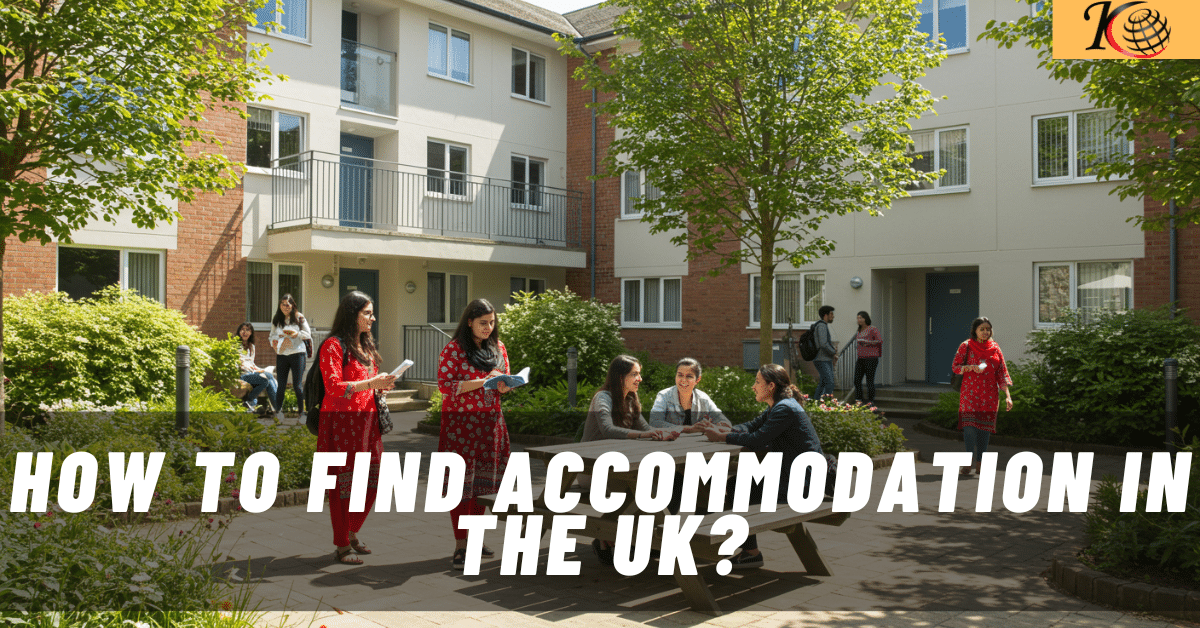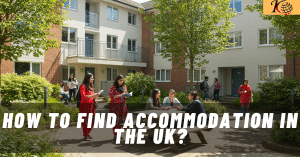
How to Find Accommodation in the UK for International Students?
Are you wondering how to find accommodation in the UK as an international student? Moving to the UK for studies can be both exciting and overwhelming, especially when it comes to finding a place to live. Your accommodation choice can significantly impact your academic success and social experience. This guide provides practical advice to help you navigate the UK housing market and find the perfect place to call home.

Planning Your Accommodation Search
Before exploring property listings, it’s essential to prepare thoroughly. Start by defining your budget to understand your financial limits, factoring in rent, utilities, groceries, and transportation costs. This helps you make informed decisions. Next, list your preferences, such as whether you prefer shared university halls, private flats, or studio apartments, while considering factors like privacy, amenities, and proximity to your university.
Research neighborhoods near your university to ensure they are safe, convenient, and student-friendly; tools like Google Maps UK can help. Lastly, begin your search early—ideally three to four months before your academic term starts—especially in high-demand cities like London, Manchester, and Edinburgh. Early preparation ensures a smoother housing journey.
Types of Accommodation in the UK
1. University-Managed Student Halls
Student halls are a popular option for first-year international students. Managed by universities, they typically offer furnished rooms with shared kitchens and living spaces. These accommodations are close to campus, include utility bills, and provide a community feel, making it easier for students to make friends. However, shared facilities might compromise privacy, and noise levels can be high during social events.
2. Private Student Halls
Private halls are run by companies and provide modern amenities like gyms, study rooms, and social lounges. These accommodations are often located in central areas and offer flexible lease terms, making them convenient. While private halls ensure a luxurious living experience, they tend to be more expensive than university halls and might make students feel disconnected from campus life.
3. Private Rentals
For those seeking independence, renting a private flat or house is a great option. This setup allows you to choose your location, enjoy more space, and share costs with roommates. However, managing utility bills and maintenance responsibilities can be challenging, and private rentals near university campuses are often competitive and expensive.
How to Find Accommodation in the UK?
Finding suitable accommodation as a student involves a few important steps. Start by exploring your options. University housing offices can help you find both on-campus and off-campus accommodation. You can also explore online platforms like UniHomes, SpareRoom, and Student.com for extensive property listings. Additionally, join student groups on Facebook or communities on Reddit for recommendations.
When shortlisting properties, consider your budget, proximity to campus, available amenities (like Wi-Fi and laundry), and neighborhood safety. After narrowing down options, contact landlords or agencies to inquire about availability, ask detailed questions about rent and lease terms, and schedule a viewing—either in person or virtually.
During property inspections, check for damages or maintenance issues, ensure appliances and heating systems work properly, and walk around the neighborhood to evaluate convenience and safety. Finally, when you’re ready to rent, review the contract thoroughly, confirm your deposit will be protected in a government-approved scheme, and seek advice from your university housing office if needed.
Essential Documents for Renting Accommodation in the UK
To rent accommodation in the UK, you’ll need some essential documents. These include your passport or visa as proof of identity and legal residency. If you’re a student, a university enrollment letter is typically required to confirm your status. You’ll also need financial proof, such as bank statements or scholarship details. Many landlords require guarantor information, especially for private rentals, and sometimes references from previous landlords.
Conclusion
Finding accommodation in the UK for international students doesn’t have to be stressful. By planning early, researching thoroughly, and using trusted platforms, you can find housing that suits your needs and enhances your student experience. Whether you choose university halls, private rentals, or shared apartments, make sure it aligns with your budget and lifestyle. For personalized guidance, consider consulting Kairos Visa Services for Free Visa Assessment and expert advice to make your transition smoother.






